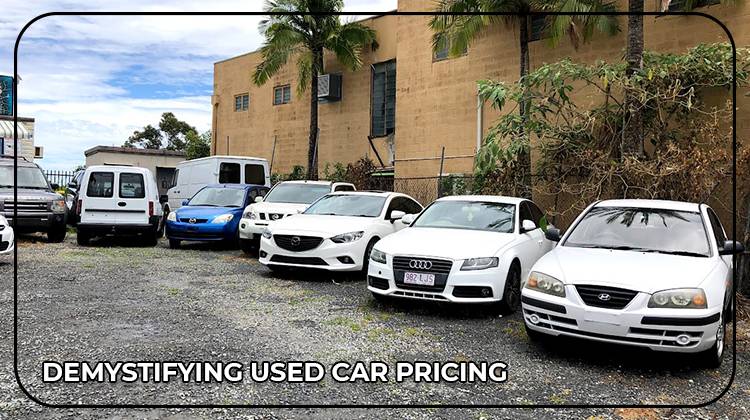Demystifying Used Car Pricing: A Comprehensive Guide
Introduction:
When it comes to buying or selling a used car, understanding its value is crucial. Numerous factors influence the pricing of used cars, and having a clear understanding of these factors can help both buyers and sellers make informed decisions. In this guide, we will explore the key elements that affect the value of used cars, including mileage, condition, age, and market demand. Let’s dive in!
Mileage:
Mileage is one of the most significant factors impacting a used car’s value. Generally, lower mileage is desirable as it indicates less wear and tear on the vehicle. Cars with high mileage may experience more mechanical issues and have reduced longevity. Buyers often prefer lower-mileage cars, which can command a higher price.
Condition:
The overall condition of a used car plays a vital role in determining its value. Factors such as exterior and interior condition, maintenance history, and any previous accidents or repairs can impact its worth. A well-maintained car with minimal cosmetic damage and a clean history will typically have a higher value than one in poor condition.
Age:
Age is another critical factor in assessing a used car’s value. As a vehicle gets older, its value tends to depreciate. Newer cars with advanced features and technology often hold their value better. However, certain classic or vintage cars may appreciate in value over time, depending on their rarity and desirability.
Market Demand:
Market demand greatly influences used car pricing. Popular car models with high demand will generally have higher resale values. Factors such as fuel efficiency, reliability, brand reputation, and current trends can all impact market demand. It’s essential to research the market and identify which cars are in high demand to gauge their value accurately.
Vehicle History Reports:
Obtaining a vehicle history report is crucial when assessing a used car’s value. These reports provide valuable information about the vehicle’s title status, accident history, previous ownership, and maintenance records. A clean history report can boost a car’s value, while a report with red flags may lower it.
Local Market Factors:
Local market conditions can also influence used car pricing. Factors such as geographic location, climate, and regional preferences can impact the demand and value of specific types of vehicles. Researching local market trends and comparing prices can help gauge the value of a used car accurately in your area.
Conclusion:
Determining the value of a used car involves considering various factors, including mileage, condition, age, market demand, and local market conditions. By understanding these elements, both buyers and sellers can make informed decisions and negotiate fair prices. Whether you’re buying or selling a used car, conducting thorough research, and utilizing resources such as pricing guides and vehicle history reports will help you navigate the market with confidence.
